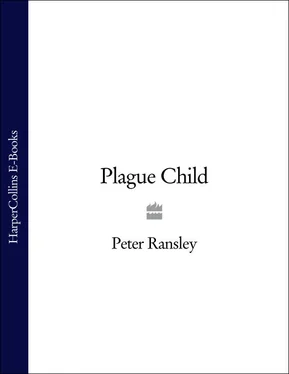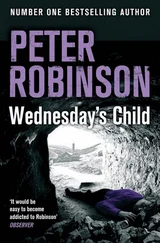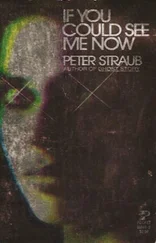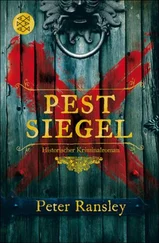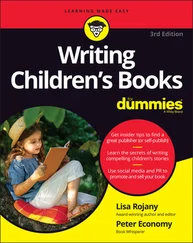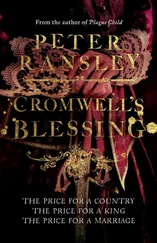It was a long moment before George recovered from his amazement and found his voice. ‘Master! His temper is as ill as his reading.’
‘Both can be taught,’ he said, prodding me with his cane, as if I was one of the calves at Smithfield. ‘Come – the tide will not wait.’
I was later to discover that Mr Black took for ever to come to a decision, but then demanded it be carried out immediately.
‘Has he any other clothes until he is fitted?’ he snapped to Susannah.
‘Only what he stands in, sir.’
‘No boots?’
‘Boots? As to boots, sir,’ she stammered, ‘I was always meaning to get –’
‘No boots, no matter. Hurry, woman, for God’s sake!’ We were already in Poplar High Street, and Susannah had run back for something, which she carried wrapped in a handkerchief. ‘Order boots, two pair, when you order the uniform from Mr Pepys,’ he rapped out at George.
It was not until we were at the quayside that I began to realise what was happening. Susannah was delirious with joy, which confused me utterly for I thought – no, I knew – she loved me and I could not believe she was giving me, like a badly wrapped parcel, to this brute, however fine his clothes were.
‘Thou art to be indentured,’ she said proudly. ‘An apprentice to a printer. With boots.’
The waterman’s boy prepared to cast off. The light was going, the soft, magical evening light over the water which I loved, and they had lit flares in whose flickering light men moved like shadows, stitching the sails which would be run up on the Resolution tomorrow.
As if she knew my soul was going to be in very little danger from coddles in future, Susannah gave me one last enveloping hug and it only struck me then that I was leaving her. I clung to her, to her smells of beer, of her herb pottage in which, however bad the times, she always managed to find me a little meat. Leaving the yard. Leaving the great boats, with their promise of freedom.
Now I would never hear the creak and groan and shudder as the Resolution left the dock, see her stagger, then find her sea-legs as the sails snapped taut, took the wind, and she headed out to the open sea. Now I would never go the Indies, gaze in wonder at parrots, ride an elephant, and listen to Matthew’s stories.
Matthew!
I cried out for him.
‘Father! Father!’
I think Mr Black was not without feeling then, for he asked a shipwright to find him. No one had seen him all day. That increased my distress. He had gone to the Indies without me. But the boatman was muttering and cursing and Mr Black gave him a curt signal to leave. He prodded at the bank with an oar and the boat began to drift out into the current.
‘Wait! Wait! Dear God Almighty, I almost forgot!’
Susannah flung at me what she had carried in the handkerchief. The handkerchief fluttered into the water but what was in it landed at my feet with a thump. Her Bible. It was all she had. All? It was her greatest treasure. She stood there, waving and waving, growing smaller, dimmer, as the boatman pulled at the oars.
Tears stung my eyes but then I saw the sour smile on George’s face and blinked them back. No doubt he thought this was good for my soul, but what he thought good I thought a great evil.
I glared sullenly back at George. I swore then, silently to myself, on the Bible I gripped, that I would be as evil as possible. I remembered the pendant that Matthew had stolen, the future he had seen through it in the flickering firelight of the yard, and I was determined that wherever this boat was taking me, I would end the journey either with great treasure in the Indies, or at Paddington Fair.
Chapter 2
They beat it out of me. That evil. Or, if you like, those childhood fancies. Mr Black thrashed me with his cane until it broke, for which offence I was thrashed all the more with the new one. Gloomy George knocked the evil out of my head with his composing stick. But worst of all was Dr Gill, the tutor hired from St Paul’s, so I could learn to compose print for textbooks on nature and the physical world, which were in Latin.
As George knocked the evil out of me, Dr Gill knocked what Latin he could into me with a ferula. This was a flat piece of wood expanding at the end to a pear shape with a hole in the middle, guaranteed to raise a painful blister at one blow.
Worse than the beating was the cellar, which I thought the coldest, dampest, darkest hole on God’s earth. Even now I cannot recall it without a shudder, although I was only locked in there once before – well, I will come to that. That first time I believe I had some kind of fit in there; at any rate, Mr Black said I was not to be locked in there again, and George had to make do with thrashing me.
My only comfort was Sarah, the maid of all work, with whom I shared the garret, although at first she seemed another enemy, who spoke with an accent so thick I thought she was from a foreign country like Scotland.
‘Sitha – that’s thy place – that side o’ beam – and this be mine All reet?’ That beam! It was so placed and so crooked that at whatever angle I got out of bed it seemed to strike my head. ‘Clodpole! Some people never learn,’ she invariably said, until I yelled at her, calling her a Scottish whore. She seemed more upset by the first epithet than the second, saying she would rather be dead than Scottish. She came from Hull. From the Indies? I cried, asking her if there really were parrots and elephants there.
‘Oh, aye,’ she said. ‘And birds that fly backwards. Come here, clothhead. Mind beam.’
She rubbed some pig’s fat in the bruise, which she used for her own knocks and cuts, and from that moment, however bad the beatings were, there was always the pig-fat to take the sting out of them. While she rubbed, I read to her from Susannah’s Bible. I wrote to Susannah through the minister, Mr Ingram, and got messages back carried by drovers taking cattle to Smithfield.
One of them told me Matthew disappeared shortly after I left the shipyard. I never heard from him. If Susannah did, she never told me. That cut me most of all. I never forgot them, but my memory of them gradually faded as I changed from a barefoot pitch boy into a London apprentice.
For five years I was flogged regular for construing Latin, misconstruing Latin (it seemed to make little difference whether or not I got it right), for not wearing my flat cap, for losing it, for dicing, swearing, blaspheming, going into alehouses, fornicating (talking to a bawd outside the Pot Upside Down), losing my boots (I confess I put them on the throw of a dice), attempting to corrupt (a love poem to Mr Black’s daughter, Anne, of which more anon) until, in 1640, Parliament was recalled and they were suddenly too busy to beat me.
Parliament? I had scarce ever heard of it. The King had got rid of it and ruled with his own personal advisers. He had also got rid of news, which his advisers called lies and rumours, and with it a great deal of his business, complained Mr Black. Robert Black, at the sign of the Half-Moon, used to publish corantos with news of the wars in Europe, shipwrecks and the like, but the King had banned them, with threats of the Star Chamber. But now Parliament was back and London so hungry for news that printers were prepared to take risks to provide it.
The only debating chamber I knew before Parliament was the Pot Upside Down. The view of my friend Will, who chaired the debates there, was simple. Good Queen Bess (as we still called her) had won all her wars against the Spanish, the French and the Dutch. Charles had lost his. He was in debt, and needed to call Parliament to get more money. But Parliament would not raise funds until the King paid heed to its grievances on religion and taxes.
Читать дальше
